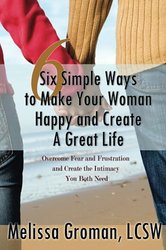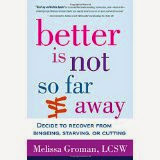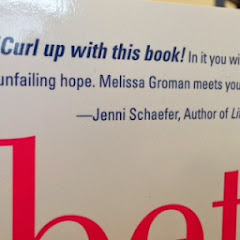 It may seem like a silly question, but it does have a serious purpose. That and, would you stay married to you? And then, why and why not? I ask this very gently because it is rarely (if ever) a good idea to question yourself harshly - though many of us do. But here in the office, as folks very diligently sort through the ups and downs of marriage, the disappointments, frustrations, angers, and desires, it does help sometimes to take a look at how you view yourself, as well as how things look from your partner's spot.
It may seem like a silly question, but it does have a serious purpose. That and, would you stay married to you? And then, why and why not? I ask this very gently because it is rarely (if ever) a good idea to question yourself harshly - though many of us do. But here in the office, as folks very diligently sort through the ups and downs of marriage, the disappointments, frustrations, angers, and desires, it does help sometimes to take a look at how you view yourself, as well as how things look from your partner's spot.
Most of us do find ourselves assessing the virtues and flaws of our partners, both as individuals and as partners. And this definately has a place. Yet, so does taking a look at how we are as marriage partners. Again, with curiosity, not with criticism, I think it helps us to take a look at what it's like to be married to us.
In studying ourselves in our role as marriage partner, we can reaffirm our good qualities and contributions. We we can also take a look at where we could grow, or how we could shift. Of course, this brings up lots of feelings and often, lots of philosophy and many good questions.
What do we expect from our partner? What do we expect from ourselves? Where do our expectations come from? What do we understand about male/female differences in expectations and needs? What kind of effect do we want to have on our partner? What are our fears? How do we express anger, loneliness, disappointment and fear? How much of our emotional and physical satisfaction should come from our partner? How much should we give? How equal do we expect things to be, and how often?
And how do we express gratitude, appreciation, joy and love? How often? How affectionate are we? How do we receive love, thanks and affection? Do we invite it, encourage it, ask directly for it, openly appreciate it? How important do we think small acts of kindness are? What about contact during the day? Phone calls, text messages?
And usually we do have to take a look at how we were treated as children, and if and how that shows up in our marriages. So many couples fair so much better when they unpack things a bit, study them, and talk about things. When couples are in crisis or when one partner is feeling angry, deprived, lonely, or out of sync, it becomes necessary to open things up for discussion.
I think that among our choices, when we are in emotional pain in our marriages, we can decide to take a deep breath and step into the willingness to talk in productive ways, to see ourselves more deeply, and to go forward towards better.












